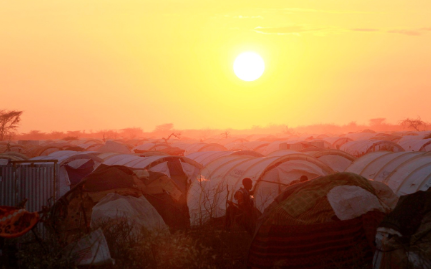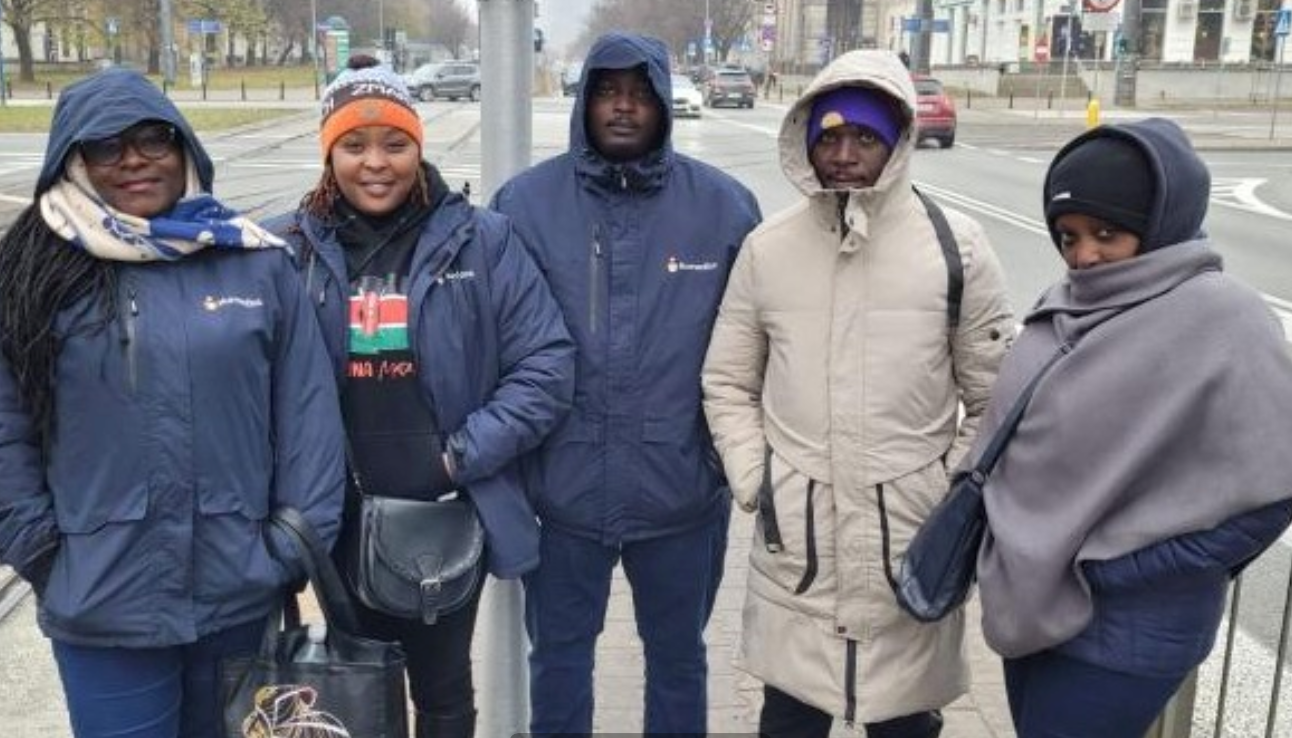
Kenya
has 843,000 refugees and asylum seekers from Somalia, South Sudan, Ethiopia and
the Democratic Republic of Congo.
While majority are housed in large long-term camps such as Daadab in Garissa county, Kakuma and Kalobyei in Turkana county, the model has often led to isolation and hindered integration.
Some undocumented refugees have also found their way to Nairobi, depressing the city’s infrastructure and amenities.
The Kenyan situation is in sharp contrast of Poland’s, which hosts about 960,000 Ukranian refugees under temporary protection.
As of June, the United Nations High Commissioner for Refugees said the Polish government had about 960,000 Ukrainian refugees under temporary protection.
The Polish government applied a completely different model, enabling newcomers to quickly become part of the country's social and economic fabric.
Kui Mugweru, a community radio journalist who travelled to Poland to learn about the different models of the Kenyan and Polish governments are using to handle the refugees situation, says it is hard to tell who is a refugee and who is not in Poland.
"During our entire stay, the only thing that came close to the refugee camps in Kenya are the food fridges. And even those are not for refugees. They are for people with excess food to share with those who might not have something to eat," she says.
Adoption of special number
Ukrainian refugees started to arrive in Poland on February 24, 2022, the very first day of Russia's full-scale invasion of Ukraine.
Within hours, the Polish government adopted a legislation allowing refugees to automatically receive a national identification number called Pesel.
The number is essential for legal residence, access to work, education and healthcare.
Instead of long-term stays in collective accommodation centres, most found housing within the first weeks – initially with private individuals and later renting apartments independently.
This decentralised trust-based approach, fostered quick adaptation and self-reliance.
A United Nations High Commission of Refugees and Deloitte report published on June 10, says Ukrainian refugees contributed to a 2.7 per cent increase in Poland's GDP last year alone.
"The financial assistance and support provided to them has already paid off. Their swift entry into the labour market, business creation and increased consumption fuelled tax revenues and revitalised local economies," the report says.
It forecasts that tax revenues generated by this group could exceed PLN 4 billion (Sh0.1 trillion) annually in the coming years, with the long-term net fiscal impact remaining positive – even with continued support.
“Poland has gained not only human capital but also a new development boost – proving that investment in integration can bring tangible economic benefits in short-term and long-term demographic and social strategy,” the report says.
Not by accident
Dominika Springer of HumanDoc Foundation says this did not happen by accident.
"Before
someone can take a job, they need to regain stability – psychologically,
socially – and receive language and integration support. That's what we do at
HumanDoc. Because by helping others, we also help Poland," she says.
“This kind of holistic support – combining empathy with practical integration tools–helped many people settle more quickly. It also demonstrates that the NGO sector can be an effective and flexible partner to the state in managing migration crises.
Back in Kenya, International Rescue Committee in partnership with Oxfam International and Refugees Seeking Equal Access, is pushing for documentation access for refugees in Kenya.
IRC advisory officer Irene Shiundu says documentation will help refugees access services and help them solve some of their long-term and short-term challenges.
She says they want the government to come up with step-by-step documents that refugees need to follow to help them get the documents easily.
Some
of the services, IRC wants the documents to help the refugees include
education, healthcare and legal services.

"At the moment, some are accessing these services using the refugee IDs. But even those who have them are following a very strenuous processes, making many to give up," Shiundu told the Star.
Fatima Ali, a refugee from Daadab says many youths have missed employment and scholarship opportunities due to lack of the refugee identity card.
“Without this document, we cannot apply for scholarship opportunities and cannot even interact with the host communities,” she says.
Ali says some refugees are also unable to access some services issued by UNHCR due to lack of this document.
While Poland's integration model has brought many benefits, it does not mean the process has been easy.
Many
Ukranian refugees accept jobs far below their qualifications, often working in
difficult conditions for minimum wage.
Children in Polish schools also face language, emotional and adaptation barriers.
Shirika
plan
In March President William Ruto launched the Shirika Plan, which seeks to devise a plan to accommodate refugees within communities.
The plan borrows from Poland’s way of hosting refugees, except that Kenya might experience challenges due to its unstable economy.
"The Shirika Plan is our bold, homegrown solution which amplifies the African Union’s call for African solutions to not only Africa’s problems but also global challenges as well," Ruto said during the launch.
"The plan’s strategy to transform refugee camps into integrated settlements gives inclusion a new expression by promoting the creation of opportunity in a manner that intentionally benefits refugees and host communities alike."
He said the new plan fulfilled the government's strategy to include refugees in county development plans by integrating them into the education, healthcare and financial systems.
"As I speak to you, more than 70,000 refugees are enrolled for universal health coverage under the Social Health Insurance Fund, while IDs for refugees are recognised by the Integrated Population Registration System," the President said.
Ruto called on international partners to enhance their contribution to transform the plan into reality.
UN High Commissioner for Refugees Fillipo Grandi described the plan as progressive and one that will ease the burden suffered by refugees as their lives often come to a halt while they are in camps.
He called integration the more humane approach.
Ruth Keah, another community journalist on the exchange programme says she learnt that Poland has been able to successfully integrate the refugees through strong governance systems that ensure smooth societal functioning and public order.
This article is supported by the Ministry of Foreign Affairs of the Republic of Poland within the grant competition “Public Diplomacy 2024-2025 - the European dimension and countering disinformation”















